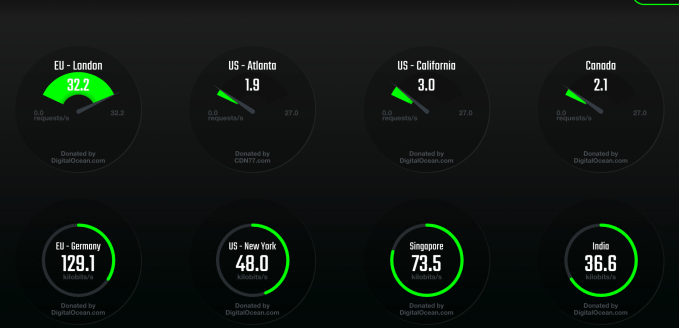Nearly everything about Netdata, makers of open source monitoring tool, defies standard thinking about startups. Consider that the founder is a polished, experienced 50-year old executive, who started his company several years ago when he became frustrated by what he was seeing in the monitoring tools space. Like any good founder, he decided to build his own, and today the company announced a $17 million Series A led by Bain Capital.
Marathon Ventures also participated in the round. The company received a $3.7 million seed round earlier this year, which was led by Marathon.
Costa Tsaousis, the company’s founder and CEO, was working as an executive for a company in Greece in 2014 when he decided he had had enough of the monitoring tools he was seeing. “At that time, I decided to do something about it myself — actually, I was pissed off by the industry. So I started writing a tool at night and on weekends to simplify monitoring significantly, and also provide a lot more insights,” Tsaousis told TechCrunch.
Mind you, he was a 45 year old executive, who hadn’t done much coding in years, but he was determined as any startup founder tends to be, and he took two years to create his monitoring tool As he tells it, he released it to open source in 2016 and it just took off. “In 2016, I released this project to the public, and it went viral, I wrote a single Reddit post, and immediately started building a huge community. It grew up about 10,000 GitHub stars in a matter of a week,” he said. Even today, he says that it gets a half million downloads every single day, and hundreds of people are contributing to the open source version of the product, relieving him of the burden of supporting the product himself.
Panos Papadopoulos, who led the investment at Marathon, says Tsaousis is not your typical early stage startup founder. “He is not following many norms. He is 50 years old, and he was a C level executive. His presentation and the depth of his thinking, and even his core materials are unlike anything else have seen in an early stage startup,” he said.
What he created was an open source monitoring tool, one that he says simplifies monitoring significantly, and also provide a lot more insights, offering hundreds of metrics as soon as you install it. He says it is also much faster, providing those insights every second, and it’s distributed, meaning Netdata doesn’t actually collect the data, just provides insights on it wherever it lives.

Live dashboard on the Netdata website.
Today, the company has 24 employees and Tsaousis has set up shop in San Francisco. In addition, to the open source version of the product, there is a SaaS version, which also has what he calls a “massively free plan.” He says the open source monitoring agent is “a gift to the world.” The SaaS tool is about democratizing monitoring, and finally, the pay version is even different from most monitoring tools, charging by the seat instead of by the amount of infrastructure you are monitoring.
Tsaousis wants no less than to lead the monitoring space eventually, and believes that the free tiers will lead the way. “I think Netdata can change the way people perceive and understand monitoring, but in order to do this, I think that offering free services in a massive way is essential, Otherwise, it will not work. So My aim is to lead monitoring. This may sound arrogant, and Netdata is not there yet, but I think it can be,” he said.
from Startups – TechCrunch https://ift.tt/2mEe1Zn
Comments
Post a Comment